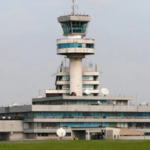A foremost professor of virology and former Vice-Chancellor of the Redeemer’s University, Ede, Professor Oyewale Tomori, says that Monkeypox had been in Nigeria for over 50 years and so it should have long been declared an emergency before WHO’s pronouncement.
The World Health Organization (WHO), on July 23, declared monkeypox a global public health emergency, just one month after the agency determined the severity of the outbreak had not reached an emergency level at the time.
Tomori, a former virologist at the WHO, said that declaring monkeypox to be of public health event of international concern (PHEIC) now is ensuring that the world joins forces to bring the virus under control.
According to him, it was wrong for Nigeria to wait for WHO to declare monkeypox a public health emergency when we already have the emergency in our hands given that monkeypox had been in Nigeria since about 1970 and it is just getting into Europe this year and they are worried about its implication.
“Declaring it public health of international concern now is of absolutely no use to anybody because the Europeans have already started what that PHEIC was supposed to do. They are taking care of themselves. Even when a vaccine comes, they are not going to give you a vaccine until they have solved their own problem.
“This is an emergency that has been in Africa for 50 years and we did nothing until WHO declared monkeypox a public health emergency in 2022. Today, nobody knows the reservoir of monkeypox and that should have been an area we should have put our effort on. That would have been a good contribution. If you don’t know its reservoir, you don’t know what to prevent.”
Dr Moses Adewunmi, a virologist at the College of Medicine, Ibadan said that the upsurge in monkeypox cases is likely a direct result of the digital surveillance system, and its consequent improvement in the early detection of cases.
Dr Adewunmi added that the reported male-to-male transmission is not a strange find since, during the early stages of monkeypox infections, rashes and lesions sometimes occur in the genital and perineum area of infected individuals.
However, Dr Adewunmi said policymakers need to ensure resources are directed towards improving surveillance, early and definitive diagnosis, and as well as funding of research aimed to determine the circulating variant of the virus and effective control. “We should learn from the COVID-19 pandemic and improve our response system” he suggested.
Professor Georgina Odaibo, Head of the Department of Virology, University of Ibadan, said the increasing spread of the virus is a telltale that the human-to-human transmission of the virus has improved although the male-to-male transmission of monkeypox still needs to be investigated.
Executive Secretary, Nigerian Academy of Science, Dr Oladoyin Odunbanjo said although many questions are begging for answers on monkeypox, “as a matter of fact, there is a political issue around it, which is why they are making so much force about it because it is not just in Africa. They are also talking about a name change because they are now the ones infected. They think monkeypox is stigmatising.”
WATCH TOP VIDEOS FROM NIGERIAN TRIBUNE TV
- Relationship Hangout: Public vs Private Proposals – Which Truly Wins in Love?
- “No” Is a Complete Sentence: Why You Should Stop Feeling Guilty
- Relationship Hangout: Friendship Talk 2025 – How to Be a Good Friend & Big Questions on Friendship
- Police Overpower Armed Robbers in Ibadan After Fierce Struggle






